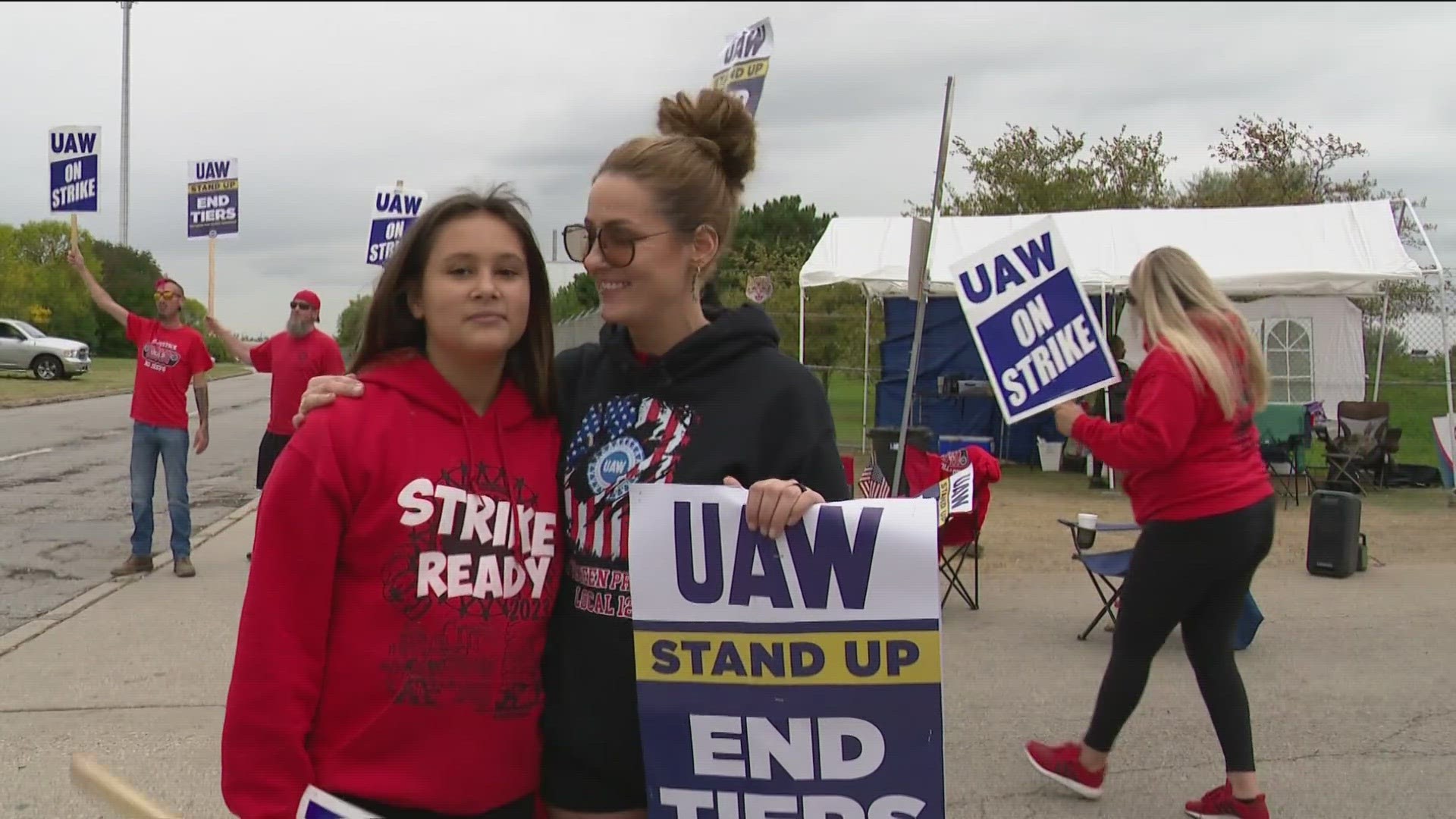TOLEDO, Ohio — Thursday marks two weeks since the United Auto Workers began their strike against the Big Three automakers, walking off the job at three plants in Toledo, Michigan and Missouri.
More plants joined the strike on Sept. 22 and UAW President Shawn Fain said the strike may expand even further on Friday.
Workers at the Jeep Assembly plant in Toledo, one of the initial three on the picket line, have seen their first strike paycheck of $500. And for the parents on the line, explaining to their kids why money will get tighter for a little while is a special challenge.
That's why some of the workers have brought their kids with them to the picket line to get a taste of what it's all about, like assembly worker Erica Cumpian who brought her 12-year-old daughter to the strike line to show her what she's fighting for.
"I didn't think she would be into it and then out of the corner of my eye, I would see her holding signs on her own without me telling her to and it makes me proud to see that she understands what it means to all of us," Cumpian said.
That lesson is something chief union steward Mike McCoy is also trying to teach to his youngest daughter.
"That's just what I want her to know, sometimes you need to stand up and fight for what you think is right," he said.
As a mother of five and a father of three, both parents say they want their kids to understand that it's more than just shouting and waving signs.
"We're doing this for our kids, first off, that's why we're doing this," McCoy said.
But it's a fight that comes with some temporary sacrifices. In this case, that means their families living on only $500 a week of strike pay.
"We're not going out to eat as much, we're not driving around as much and spending our money at local gas stations, we're just watching our money," McCoy said.
Cumpian said the financial struggles being shared by other workers can provide comfort, though.
"It's scary to raise five children and be on the $500 dollars a week," she said. "I am going to do what I have to do and lean on the community I have."
They hope that by bringing their kids to the strike line, they will have more context for why their lives will be going through all these changes.
"She has questions and she wants to do things too and we really have to cut back on a lot of stuff," McCoy said.

